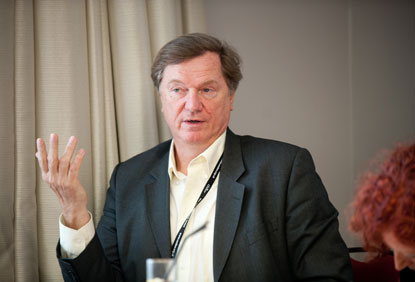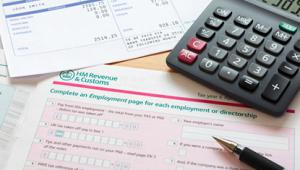By Richard Johnstone | 29 January 2013
Local authorities should be given a host of new financial powers, including a share of income tax, as part of reforms to achieve the full potential of localism, a committee of MPs has said today.
 The political and constitutional reform committee’s inquiry into the relationship between English councils and Whitehall has concluded that greater autonomy for town halls could also improve local public services.
The political and constitutional reform committee’s inquiry into the relationship between English councils and Whitehall has concluded that greater autonomy for town halls could also improve local public services.The cross-party committee called for a new statutory code to govern relations between central and local government, and published a possible example. As well as setting out the range of tax powers available locally, it would state that councils are constitutionally independent of central government.
Currently, the balance of power between central and local government is ‘skewed’ in favour of the centre, the Prospects for codifying the relationship between central and local government report concluded.
This should be addressed by devolution of both administrative power and financial control, including providing councils with a share of income tax. This take could then be renegotiated whenever responsibilities move between central and local government.
Ministers should also allow local councils in England to raise additional revenue through new taxes if they are approved by local electorates.
Launching the report, committee chair Graham Allen said some government policies, such as the City Deals, were ‘a step in the right direction’ towards increasing the power of local government.
However, there is still ‘much more we can do to set local government free’, he added.
‘In the long term, I would like to see English local government retain a sizeable part of the income tax take for England, and have the ability to implement other revenue-raising schemes, with local consent. These measures could revitalise local democracy and kick start the local economic growth that we so desperately need.’
He urged ministers to use the exemplar code, which was first proposed last February, as the basis of a ‘national conversation’ on the powers of councils.
‘Codifying the relationship between central and local government would pave the way for a radical new settlement for local government in England, freeing it from some 1,300 duties set by Whitehall, with which local councils are forced to comply,’ Allen added.
Responding to the report, the Local Government Association said councils need ‘freedom to make independent decisions about local issues’.
LGA chair Sir Merrick Cockell added: ‘The LGA has worked closely with the committee to develop the foundations for a more grown-up relationship between central and local government, and we back the report’s recommendation to move away from the 1,293 existing duties imposed on councils and replace them with a more balanced relationship between Whitehall and town halls.
‘We hope that the report will open a wider debate over the importance of independent local government and we will continue to work with the committee and our members to develop that debate with central government as the next general election approaches. We would be particularly interested in how the code proposed by the committee might be given real legal force.’
Local government minister Brandon Lewis said that, once a proportion of business rates are localised to councils from April, an estimated 70% of council income would be raised locally.
‘This is a dramatic shift in power away from Whitehall, accompanied by measures to increase direct democracy in the Localism Act – such as referendums to stop unwanted hikes in council tax or business rates,’ he said.




















